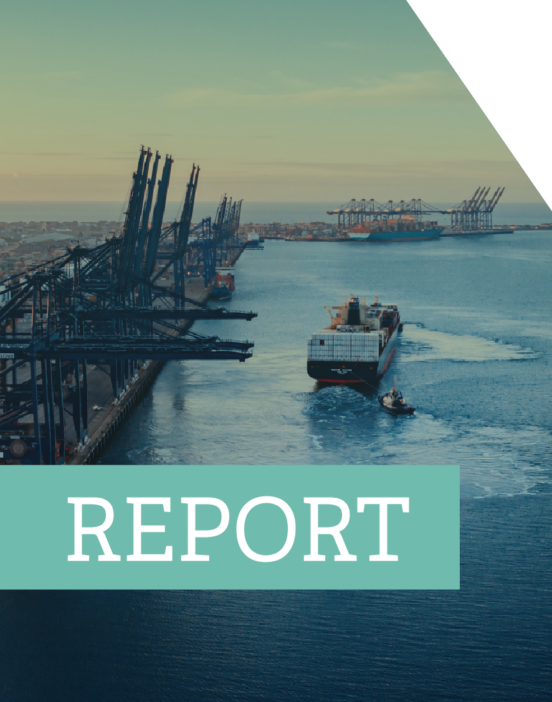Trading Up

After nearly half a century of EU membership, Britain needs a trade strategy. The stakes are high: such a strategy shapes what families and firms buy from abroad, and what gets produced domestically; influences our jobs, productivity levels and, ultimately, living standards; and contributes a major plank of Britain’s international policy at a time of heightened geopolitical tensions. This report, part of the Economy 2030 Inquiry, sets out what a successful trade strategy should look like, harnessing trade as an engine for UK growth, while being highly integrated with domestic policy, but recognising the constraints implied by the global and domestic context.
This report finds that the UK’s initial post-Brexit trade plan has run out road and must be replaced with a far more ambitious twin-track trade strategy that protects high-value manufacturing while seeking out new markets for our world-leading services sector. That means a defensive approach on goods that protects high value added manufacturing firms struggling to retain their place in European supply chains; and an expansive approach on services that ensures the UK benefits from the global services trade tailwinds.
- Britain’s post-Brexit trade approach has focussed on a high volume of free trade agreements, but this is tool that is unsuited to building on Britain’s strengths as a service ‘superpower’. The average long-run increases in goods trade from such deals are estimated to be between 54 and 97 per cent, compared to an increase of just 5 to 17 per cent for financial services.
- The hit to UK manufacturing trade from the Trade and Cooperation Agreement is already clear. At the end of 2022, the high-value manufacturing exports such as cars and chemicals were (respectively) 11 per cent below and just 2 per cent above pre-Brexit levels. This is underperforming the rest of the G7, where car and chemicals exports were on average 4 per cent below and 25 per cent above the level at the start of that period.
- There is deep supply-chain integration between the UK and the EU: in 2022, 52 per cent of trade with the EU was in intermediate goods.
- Some high-value manufacturing, such as cars, have clear economies of scale. For example, 8 out of every 10 cars built in the UK are exported, with almost 60 per cent going to the EU. It is also specialised, with the UK making twice as many engines as cars, selling these engines to international plants.
- The UK is the second-largest services exporter in the world and has broad specialisms in a range of service sectors, including cultural and recreation and business services. The sectors the UK specialises in have grown strongly in recent years, with global services exports in these industries tripling between 2005 and 2021, outpacing goods exports which doubled over the same period.
- The UK is well placed to take advantage of this growth in services trade. Maintaining our global share of such trade could be worth £200 billion in higher exports by 2035 relative to scenario in which Brexit trading arrangements continue to hamper progress. This means the rewards to a successful trade strategy are potentially huge.
- Politicians from all sides say they want to grow high-value manufacturing but if we are serious about this we need to remain part of European supply chains. But doing so, means revisiting our relationship with the EU ideally delivering a ‘UK Protocol’, building on the agreement for Northern Ireland, that will mean a frictionless flow for goods trade between the UK and EU. This could boost our GDP by 1 to 2 per cent.
- The UK should be innovative on services trade, designing and negotiating new Services Trade Agreements. These would address the ability of services suppliers to move across borders, and ease restrictions by recognising equivalence, where it exists, between regulatory regimes.
- Such an approach puts domestic policy and regulation at the centre of negotiations and implementation of these agreements.
- Finally, the UK should be able to find willing partners for these Services Trade Agreements, for example building on agreements already negotiated with Singapore, Australia, Canada, Switzerland and Japan. Refocussing trade policy on services deals with these countries would tap into a large and growing market for the services the UK specialises in. Agreements with these countries could add up to £6 billion in business services exports annually (or £17 billion if the US is included).
Contact
For all research queries about this report, please contact Sophie Hale. For press queries, please contact the Resolution Foundation press office.

Sophie Hale
Principal Economist,
Resolution Foundation
Email Sophie